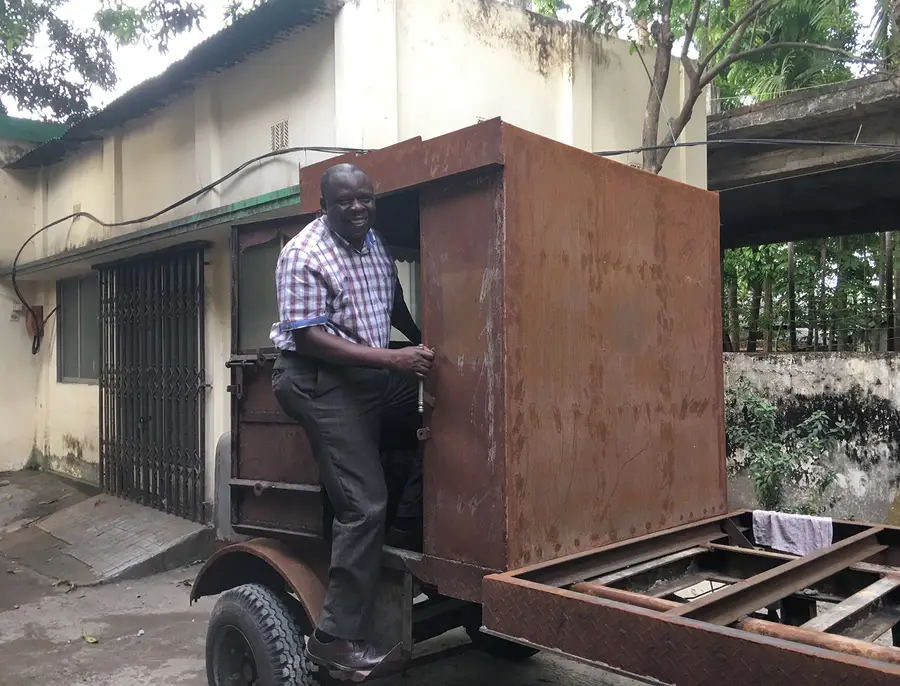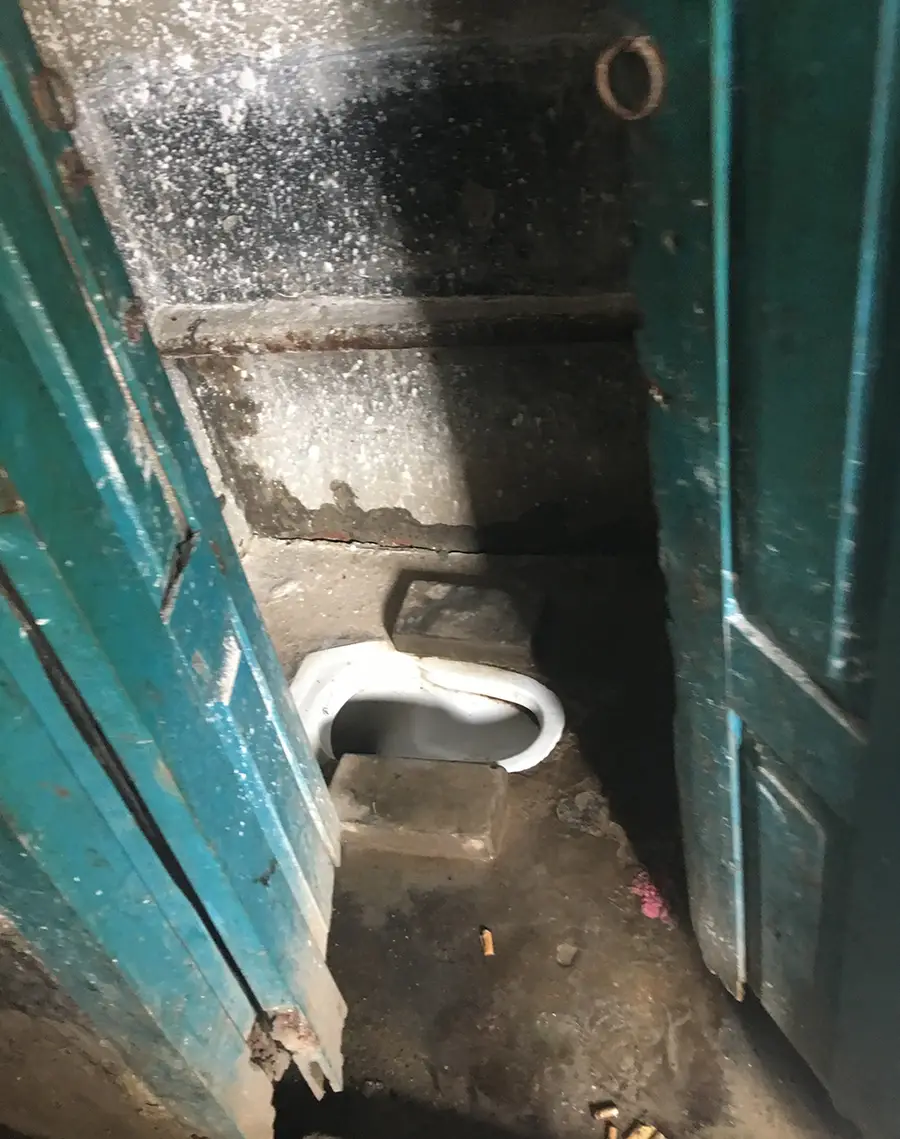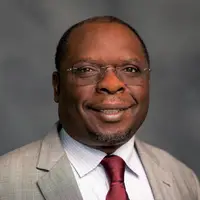
We sat down with Dennis Mwanza, RTI’s Senior WASH Advisor, to discuss his 25-year career in the water and urban sanitation sector, the largest remaining obstacles to improving urban sanitation in Africa, and his work on the USAID-funded Effective Water, Sanitation and Hygiene Services (E-WASH) program. If you would like to hear more from Dennis on urban sanitation management, you can register for this December 3rd virtual event with the Society for International Development.
Tell me about your career in urban sanitation management. Why is this sector so important?
I have more than 25 years of experience in the water and sanitation sector. My journey started in a small town in rural Zambia where I worked for the government to provide a free supply of water to residents. I later had the opportunity to manage a water and sanitation reform program in Zambia which led to the commercialization of urban water services—the reverse of providing free water and the introduction of one of the first autonomous regulators in Africa after Ghana. I also worked for the World Bank’s Water and Sanitation Program, managed as Chief of Party of a regional USAID funded program, the SUWASA, and was later appointed as the deputy director of urban sanitation markets at the Bill and Melinda Gates Foundation before joining RTI International.
Urban sanitation is a critical issue. The default solution for urban sanitation has been to design sewer networks with treatment plants. Yet as of 2017, only 8 percent of the urban population in Africa had access to a piped sewer network, with most cities having zero sewer systems. Even in those countries with some sewer systems, most of them are not in a good functioning condition. On the other end of the spectrum are poorly constructed toilets or unusable pit latrines. Because of the economic, health, and social impacts of poor sanitation, governments are starting to wake up and address the issue of urban sanitation.
What was the state of sanitation like when you were growing up in rural Zambia?
The women of the house, my mother and my sisters, were expected to get water for us, which would also serve for sanitation purposes. Because it was a requirement at the village level that a toilet be dug for every household, a lot of villagers made sure that a toilet was constructed. When a toilet was full, usually after about 10 to 15 years of usage, you just buried it and dug another one a few meters away. Space was not a challenge. In town, however, there was no luxury of space. So, when a toilet was full you had to engage the night workers to manually empty the toilet with its own health risks.
What are the largest obstacles national and local governments in Africa still face regarding improving urban sanitation?
One of the largest objectives to achieving improved sanitation is that of considering this to be an engineering problem, and most engineers have been trained on centralized sewer systems as the solution for urban sanitation. This is the case not only in my country, Zambia, but generally in most developing countries in Africa. However, the challenges on the ground are very different. There needs to be a shift in the minds of all stakeholders—political leadership, professionals as well as the citizenry—to accept the reality that non-sewer sanitation is one of the major solutions for urban sanitation in African cities. Non-sewer sanitation, such as water-based septic tanks, provide basically the same standard as a toilet connected to a sewer network. New or rehabilitated sewer networks and treatment plants are prohibitively expensive. For the city of Lusaka, the cost of sewer rehabilitation and expansion to cover even just 30 percent of the population of four million people is in excess of $2 billion.
Another challenge to urban sanitation in developing countries has been the widespread lack of a clear accountable government body (Ministry) to coordinate, focus, planning and a budget line on urban sanitation. This has resulted in urban sanitation not being prioritized. In countries where the water companies have sewerage in their name,s i.e. water and sewerage company, the assumption is usually made that urban sanitation is adequately covered by the utility, which in reality it is not. Many Governments in Africa and South Asia i.e. Nepal, Bangladesh, India, Indonesia, etc. have only been starting to address the challenges of urban sanitation over the last five years, after the United Nations General Assembly set the Sustainable Development Goals (SDGs) in 2015.
When I spoke at the University of North Carolina Water and Health 2020 Conference, it was clear that without an institutional home led by the highest political level, sanitation (whether urban or rural) will not receive as much attention. According to Dr Canisius Kanangire, Executive Secretary of African Ministers’ Council on Water (AMCOW), governments need to ensure that one, principal, accountable institution takes clear leadership of the national sanitation portfolio and establish one coordinating body with specific responsibility for sanitation and hygiene. Another panelist, Dr. Abdullah Al-Muyeed, the Chief Operating Officer of the Citywide Inclusive Sanitation-Fecal Sludge Management (CWIS-FSM) Government of Bangladesh, clearly stated that having an accountable ministry should be supported by a clear implementation path with an operator defined to be responsible for coordination and delivery of urban sanitation based on the CWIS planning approach.

What are some promising developments you are starting to see in sanitation management in Africa?
Since 2008, a few countries in Africa have started to adopt a clearly defined ministry that is accountable for sanitation by way of having sanitation in the name of the ministry, such as the Ministry of Water, Sanitation and Irrigation in Kenya. Other countries that have a ministry of sanitation are Senegal, South Africa, Ghana, and Burkina Faso, but in total there are less than 20 countries out of 54 in Africa that have a clearly defined ministry of sanitation. Progress, however, is slow. While a name is not enough, the need for political will, governance and budget for sanitation and hygiene are important.
I am part of the team at RTI that is currently implementing the four-year USAID-funded Effective Water, Sanitation and Hygiene Services (E-WASH) program, which seeks to improve urban water and sanitation service delivery in Nigeria. We are strengthening the governance, financial and technical viability of state water boards (SWBs) in five states of Abia, Delta, Imo, Niger, and Taraba. As part of this huge urban water sector transformation, the state governments made an intentional and deliberate policy of clearly defining a state ministry that is responsible for sanitation—both urban and rural. This has been enshrined in the new policies and legislation which has further given this enormous responsibility of urban sanitation to the newly corporatized state water companies. The water corporations further established sanitation units and through USAID E-WASH, we are providing capacity building for this new role.
Our approach to USAID E-WASH is built around helping state governments on the journey to self-reliance by ensuring that the change that is adopted is sustainable and will yield results. Institutional transformation requires political decisions and so we used the Political Economy Analysis (PEA) approach to navigate different socio-political and economic landscapes to ensure a clear buy-in from government.
Can you explain what “Citywide Inclusive Sanitation” is and its significance to the sector?
In 2014, the acronym CWIS (Citywide Inclusive Sanitation) was born and has been a rapidly growing phenomenon in addressing urban sanitation. The main principle of CWIS is that of inclusivity and it has been garnering the attention of city administration. It is a powerful planning tool that will yield a lot of results by way of increasing access to safely managed sanitation in many cities in Africa.
CWIS works on the need to have an inclusive local steering committee or task force. The group can develop preliminary documents, which support a citywide inclusive sanitation plan, and then the actual work begins.
CWIS calls for not only leaving no city dweller behind but also is inclusive in terms of technologies and implementing partners. CWIS relies strongly on the efficiencies that the private sector can bring to the table such as emptying and transportation, and management of treatment plants. Africa is now increasing with examples of successful sanitation entrepreneurs (also sometimes known as sanipreneurs), especially in emptying and transportation. There is great demand. A survey undertaken in 2012 found that in Nigeria this is a multi-million dollar per annum turn-over business. For example, in Ibadan these businesses can be worth up to $15 Million and in Abuja around $8.7 Million.
Apart from emptying and transportation, a number of organizations or companies are also promoting the cyclic economy or full cycle economy by re-using the treated fecal sludge. Sanergy in Kenya is a great example of this, which converts toilet waste into fertilizer and animal feed for farms.
Imagine it is the year 2120. What does the state of urban sanitation management look like?
If we address these sanitation challenges with full heartedness now, and if the current approaches are brought to fruition, then in 100 years we should be talking about the circular economy—full waste to energy or other economic uses like turning waste into fertilizer. Everyone should have access to safely managed sanitation and there will be no need for governments in Africa to depend on international development assistance to address the challenge of urban sanitation. And then hopefully by that time they will have reached their destination on their journey to self-reliance.

